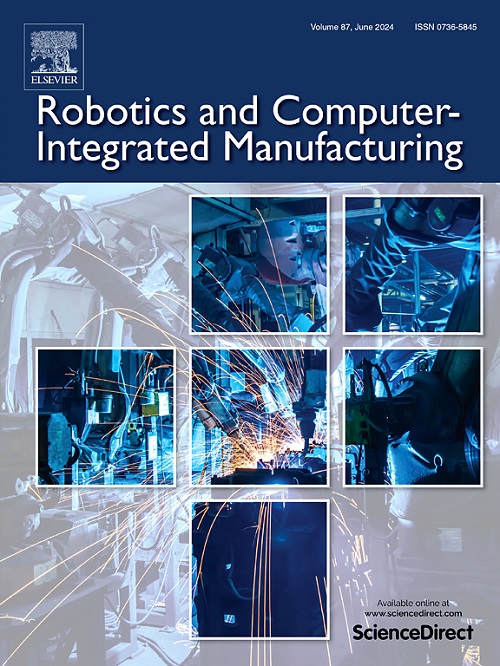A survey on learning an autonomous dynamic system for human–robot skills transfer from demonstration
IF 11.4
1区 计算机科学
Q1 COMPUTER SCIENCE, INTERDISCIPLINARY APPLICATIONS
引用次数: 0
Abstract
Autonomous dynamic systems (ADS) have become a key area of research in the field of robotics, aiming to enable robots to acquire human-like operational skills and perform complex tasks in dynamic environments without external intervention. Despite significant progress, current technologies have yet to enable robots to fully achieve autonomous skill transfer in real-world applications. The prevailing approach to bridge this gap is Learning from Demonstration (LfD), where robots learn by observing and imitating expert demonstrations. Dynamic systems-based methods, particularly those utilizing Lyapunov stability theory, have shown great potential in effectively encoding human motor skills, ensuring the stability, accuracy, and generalization of learned behaviors during the learning process. This survey provides an overview of the recent advancements in dynamic systems for skill transfer, focusing on methods that enable robots to replicate human actions, as demonstrated by experts. We present a classification of existing dynamic systems approaches, highlight landmark studies, and discuss their key features, advantages, and limitations. This paper also explores the applications of these methods and identifies major challenges that remain in both theoretical and practical aspects of robot skill learning.
人-机器人技能转移自主动力系统学习的实证研究
自主动态系统(ADS)已成为机器人领域的一个重要研究领域,旨在使机器人在动态环境中无需外界干预即可获得类似人类的操作技能并执行复杂任务。尽管取得了重大进展,但目前的技术尚未使机器人在实际应用中完全实现自主技能转移。弥补这一差距的普遍方法是从演示中学习(LfD),机器人通过观察和模仿专家演示来学习。基于动态系统的方法,特别是那些利用Lyapunov稳定性理论的方法,在有效编码人类运动技能,确保学习过程中学习行为的稳定性、准确性和泛化方面显示出巨大的潜力。本调查概述了技能转移动态系统的最新进展,重点是专家证明的使机器人能够复制人类动作的方法。我们对现有的动态系统方法进行了分类,重点介绍了具有里程碑意义的研究,并讨论了它们的主要特征、优势和局限性。本文还探讨了这些方法的应用,并确定了机器人技能学习在理论和实践方面仍然存在的主要挑战。
本文章由计算机程序翻译,如有差异,请以英文原文为准。
求助全文
约1分钟内获得全文
求助全文
来源期刊
CiteScore
24.10
自引率
13.50%
发文量
160
审稿时长
50 days
期刊介绍:
The journal, Robotics and Computer-Integrated Manufacturing, focuses on sharing research applications that contribute to the development of new or enhanced robotics, manufacturing technologies, and innovative manufacturing strategies that are relevant to industry. Papers that combine theory and experimental validation are preferred, while review papers on current robotics and manufacturing issues are also considered. However, papers on traditional machining processes, modeling and simulation, supply chain management, and resource optimization are generally not within the scope of the journal, as there are more appropriate journals for these topics. Similarly, papers that are overly theoretical or mathematical will be directed to other suitable journals. The journal welcomes original papers in areas such as industrial robotics, human-robot collaboration in manufacturing, cloud-based manufacturing, cyber-physical production systems, big data analytics in manufacturing, smart mechatronics, machine learning, adaptive and sustainable manufacturing, and other fields involving unique manufacturing technologies.

 求助内容:
求助内容: 应助结果提醒方式:
应助结果提醒方式:


